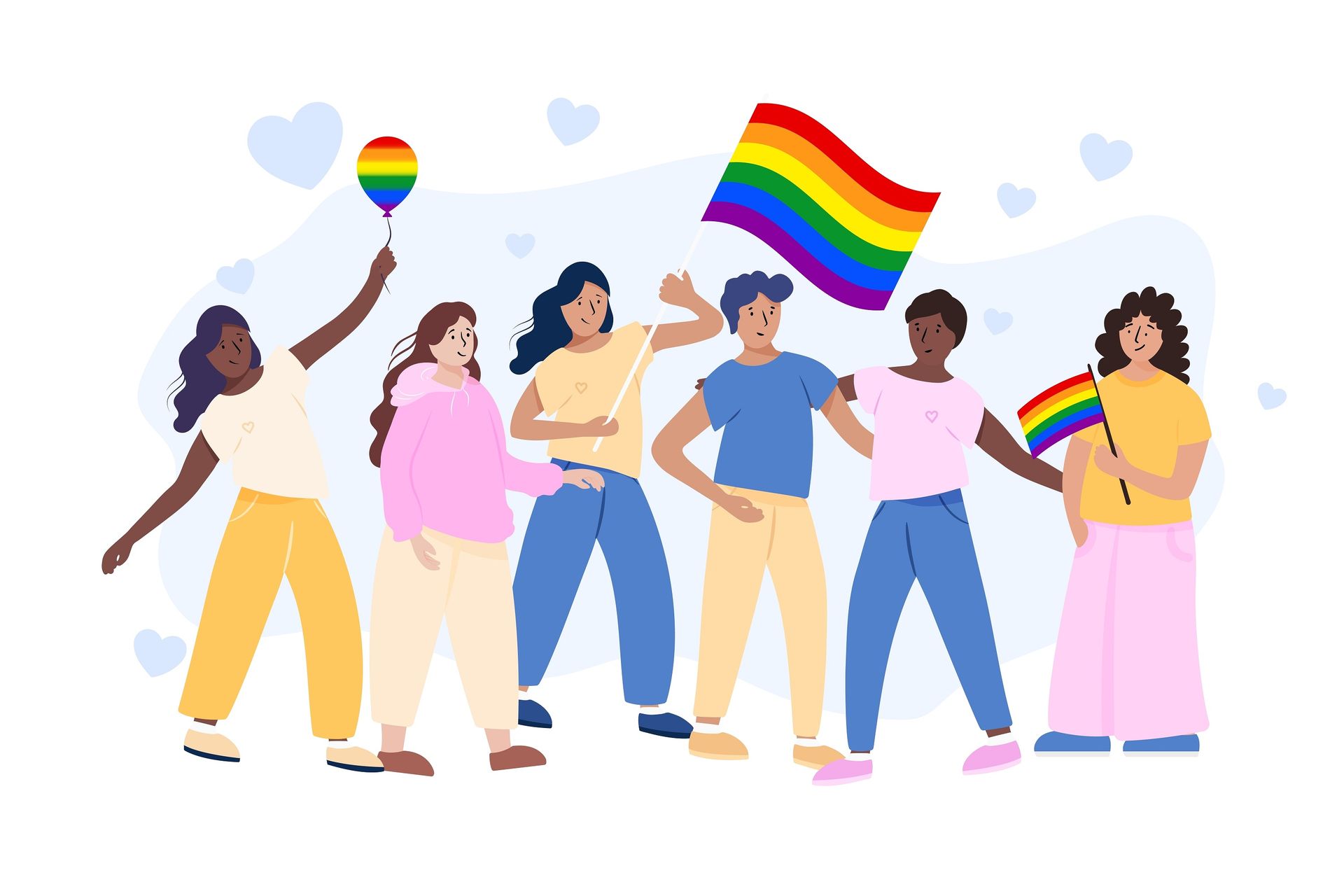All posts
How to be an ally to your LGBTQIA+ grandchild
It can be overwhelming to talk to your grandchild about gender, sexuality, and identity. Especially when the social and political landscapes are vastly different today than they were in your generation. Your grandchild is likely worried about your feelings on their identity, too. Love and support from you will be crucial for your grandchild. We […]


It can be overwhelming to talk to your grandchild about gender, sexuality, and identity. Especially when the social and political landscapes are vastly different today than they were in your generation.
Your grandchild is likely worried about your feelings on their identity, too. Love and support from you will be crucial for your grandchild.
We hope these tips can help you to be a respectful, informed ally for your LGBTQIA+ grandchild.
Have a positive mindset
LGBTQIA+ rights and social norms have changed drastically over the generations. Due to being from a different time than your grandchild, it is natural that you may have different ideas and information surrounding what it means to be LGBTQIA+.
Take this opportunity to allow your grandchild the freedom of being who they are. Be respectful of the trust instilled in you by your grandchild disclosing their identity to you. Be willing to change your perspective and beliefs that may be engrained from the past.
As an LGBTQIA+ ally, you will find the communities inclusive and welcoming.
Create a welcoming, loving environment
Even if you don’t quite understand your LGBTQIA+ grandchild, your support is the easiest and best thing you can give them.
Let your grandchild know that you love them unconditionally. Ensure that your home is a safe, judgement-free place where your grandchild can express their full self.
To create a welcoming environment:
- Use a gentle tone of voice
- Be sensitive to the emotional labour of “coming out” or “inviting in”
- Let them express themselves, regardless of social norms
- Avoid derogatory language and slurs
- Be mindful of facial expressions and reactions
- Don’t say “I always knew you were…”
- Don’t make jokes or laugh at their self-expression
- Don’t demand information or ask intrusive personal questions
- Don’t minimise their experience or say “it’s just a phase”
Don’t treat them like they’re different
Your LGBTQIA+ grandchild shows resilience, strength, and pride in the face of adversity every day. Society has long treated many LGBTQIA+ individuals like they are different, lesser, or bad.
Your grandchild is likely worried about how you’ll feel about their identity. They may fear judgement or rejection, or that their relationship with you will be damaged.
Avoid treating your grandchild like something has changed after they have come out as LGBTQIA+. Show them the same love and respect that you show to your other grandchildren. Ensure them that this won’t change your relationship with them.
Do your own research
Many LGBTQIA+ individuals find themselves having to “teach” others about gender and/or sexuality. This assumed responsibility can be frustrating and exhausting.
Show that you care and become a respectful, informed ally by doing your own research. Minus 18 and PFLAG+ Brisbane are excellent resources for parents, grandparents, and allies.
Familiarise yourself with the appropriate terminology and language and be respectful of your child’s preferred pronouns (e.g. he/him, she/her, they/their, or other).
Some relevant terms include:
- Inviting in: Disclosing one’s gender and/or sexuality. For some, the phrase “coming out” holds a negative connotation of being something to be hidden away.
- Ally: Someone who stands up for and supports members of the LGTBQIA+ communities, and in this case is usually someone who is heterosexual and/or cisgender.
- Gender or gender identity: One’s sense of whether they are a man, woman, non-binary, or a combination of one or more of these. Gender can be binary (man or woman), or non-binary (including people who have no binary gender at all and people who have some relationship to binary gender/genders).
- Sexuality: A person’s identity in relation to the gender(s) they are typically attracted to.
- Sex: A classification people are often given at birth based on external characteristics.
You can read about the up-to-date terminology on the Australian Institute of Family Studies website.
Don’t disclose without permission
Disclosing as LGBTQIA+ takes a great deal of courage, and it is a significant event that your grandchild will remember for the rest of their life.
Your grandchild trusts you enough to talk about their identity. Don’t break that trust by disclosing this information to anyone else, even if that includes your grandchild’s parents. Gender and/or sexual identity are extremely personal, and control over that information is a right that should not be taken away.
Monitor their mental health
LGBTQIA+ individuals are at increased risk of encountering acts of discrimination, including bullying, hate crimes, and exclusion. Research shows that young LGBTQIA+ Australians are between three and fifteen times as likely to attempt suicide. There is also significantly increased risk of depression, anxiety, substance abuse, and psychological distress.
Keep an eye on your grandchild for signs of self-harm, withdrawal, depression, or anxiety. If you notice these signs or any other alarming behaviours, remind your grandchild that you support them, and encourage them to seek support from a GP.
Our Rainbow Program supports the mental health and wellbeing of individuals who are gender and/or sexuality diverse.
If you or an older person you know need help in mending a relationship, our experienced counsellors are here to help. We can help you explore your concerns and possible solutions in a safe and supportive environment.
You can learn more about our Elder Mediation Support Service here, or call 1300 063 232.
Want to receive updates on our Senior Relationship Services blog posts?
Back to all posts